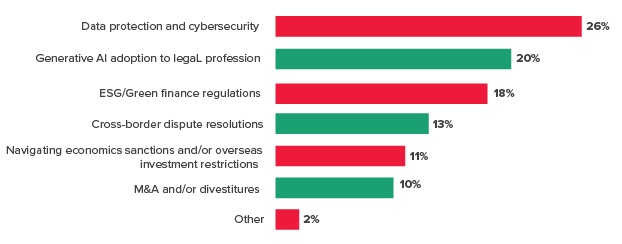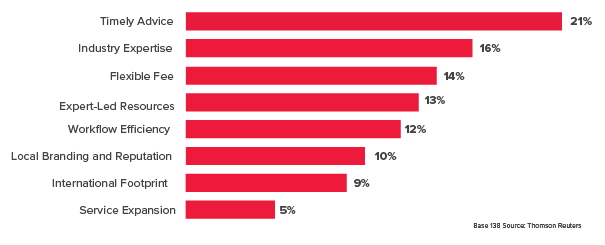This article marks the first instalment of a three-part series, “Reinventing Law: Singapore’s Legal Profession in Transformation.” The series examines how Singapore’s legal sector is evolving amid rapid technological change, shifting client demands, and new regulatory and policy frameworks.
In this first part, we provide an overview of the profession’s foundations—its economic role, digital transformation, workforce dynamics, and the challenges shaping its future. Look out for the next two parts in our upcoming issues which, we will take a closer look at policy, innovation, and the opportunities ahead through 2030.
Part 1 – The New Foundations – Growth, Technology & the Talent Equation
The professional services sector (including legal, accounting, consulting, etc.) is a strategic growth engine for Singapore’s economy. The Ministry of Law reports that the legal services sector’s nominal value-add grew by more than 25% from S$2.36 billion in 2018 to S$2.98 billion in 2023 and exports of legal services jumped by nearly 35% over that period to S$1.40 billion.1 This reflects rising international demand (e.g. arbitration, IP, cross-border M&A) and Singapore’s position as a regional legal hub. Clients increasingly demand faster, technology-enabled, and industry-specific legal services.
In the inaugural Asia Legal Priorities Report 2024 by Thomson Reuters, which gathers insights from nearly 250 legal professionals, including 108 in-house counsel and 138 private practice lawyers, the following were cited as their top concerns:

In the same report, the strategy most likely to drive growth in law firms was identified as timely advice and sector expertise, so the client strategy that will deliver the most growth.

This underscores a shift toward efficiency, data/privacy safeguards, and sustainability issues.
- Digital/legal tech and AI
- Workforce and talent
Singapore has actively managed its legal talent pipeline. Law student intakes were cut after 2013 to avoid oversupply.4 Despite this, the annual call numbers still grew steadily from 535 in 2015 to 716 in 2020. However, in 2021 and 2022, the call dropped sharply to below 600. Despite earlier shortages, Singapore now faces a glut of lawyers: in 2023, about 509. This contraction likely reflects the Pandemic-related disruptions due to delays in qualifying or overseas law schools, declining interest in legal careers among top talents and oversupply fears. Talent retention is a concern too: surveys note many young lawyers cite burnout and seek work life balance. New labour guidelines (e.g. mandatory flexible work arrangements from Dec 2024) are expected to push firms toward digital collaboration tools and flexible staffing. More broadly, Singapore competes for ASEAN legal talent; the pro business environment and geographic location help draw global law firms (over 130 foreign firms operate in Singapore under FLP/QFLP/JLV licences).
- Regulatory and policy environment
Singapore’s government actively cultivates the legal sector, as this sector plays a crucial role in cementing Singapore’s position as a world-class financial and commercial hub. The Legal Services Regulatory Authority (LSRA) licenses firms and foreign practitioners, allowing international firms to advise on Singapore law only via specific schemes (QFLP, JLV, etc). The government has updated laws and infrastructure to reinforce hub status: e.g., modern arbitration and mediation frameworks, digital courts and e filing (launched during COVID), and a new Arbitration Act in 2021 to align with United Nations Commission on International Trade Law (UNCITRAL). Singapore’s Model AI Governance Framework (and GenAI extension) guides ethical AI in business, impacting law firm compliance. The Ministry of Law’s Professional Services Industry Transformation Map (2023)5 and LegalTech Roadmap6 commit grants and training to drive digital transformation. In particular, the 2022 Legal Technology Platform (LTP) programme and its 2025 successor - Legal Innovation and Future-Readiness Transformation (LIFT)7 provide co funded consulting and tech support to law firms. Overall, Singapore positions itself as a technology savvy legal hub with strong IP protection, regional HQs, and incentives for professional services growth.
Key Challenges:
Legal firms face intense competition and margin pressure. Clients are more value conscious and may do more in house or on fixed-fee models. Smaller firms struggle with the cost of tech adoption (survey: 66% cite budget limits). Cybersecurity, data privacy, and legal ethics (AI bias, confidentiality) remain pressing concerns as digitisation deepens. At the same time, firms must adapt to new non lawyer competitors (Big Four legal arms, Alternative Legal Service Providers) and evolving business models (subscription, legal process outsourcing). Workforce stress is high: attrition and disillusionment among young lawyers are evident. Finally, global geopolitical risks (e.g. US China tensions) could affect cross-border transactional work, as noted in policy analyses.
---------------
1Response Speech by Second Minister for Law Edwin Tong at the Committee of Supply Debate 2024
2Legal AI features in 'AI Skills Challenge' for Singapore-based lawyers - TR - Legal South East Asia
3How this Singaporean law firm relies on technology to navigate global challenges
4Singapore Law Minister warns of surge in lawyers | British Council
5Boosting Singapore's Business Hub Status Through A World-Class Professional Services Industry | Singapore EDB
6Technology and Innovation Roadmap Launched to Support Legal Industry in Adoption of LegalTech
7Driving the Next Stage of the Singapore Legal Industry’s Digitalisation Journey Through the (LIFT) Initiative

